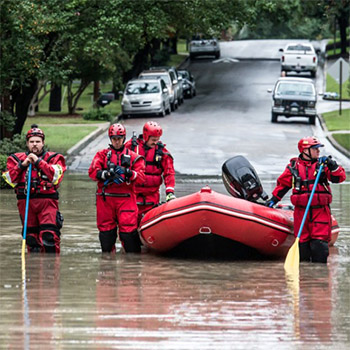 |
Flooding in South Carolina: Understanding Disparities in Local Populations Affected by Disasters |
Elizabeth Albright (Duke University), Deserai Crow (University of Colorado Denver), and Alexandra Cooper (Duke University) are studying recent flooding in South Carolina to understand disparities in local populations that are affected by disasters. In recent years, the US has incurred devastating flood-related damages as a result of Superstorm Sandy, a 1,000-year flood event in the Front Range in Colorado, extreme flooding in Texas, and across much of South Carolina. Globally, flooding is predicted to increase as our climate changes and communities continue to build in floodplains, setting up the potential for long-term challenges. As populations increase in flood-prone areas, communities, households, and individuals are becoming increasingly vulnerable to floods. Disadvantaged communities often bear a disproportionate burden of disaster, frequently worsening pre-existing inequities. To understand how communities respond to and recover from disasters, we are assessing how the public comes to understand and make meaning from their flood experiences, and how this meaning relates to perceptions of future risks, mitigation behaviors, and their support for actions that their governments may take to reduce flood risks. The project is funded by Duke University's Bass Connections program and through its Social Science Research Institute.
